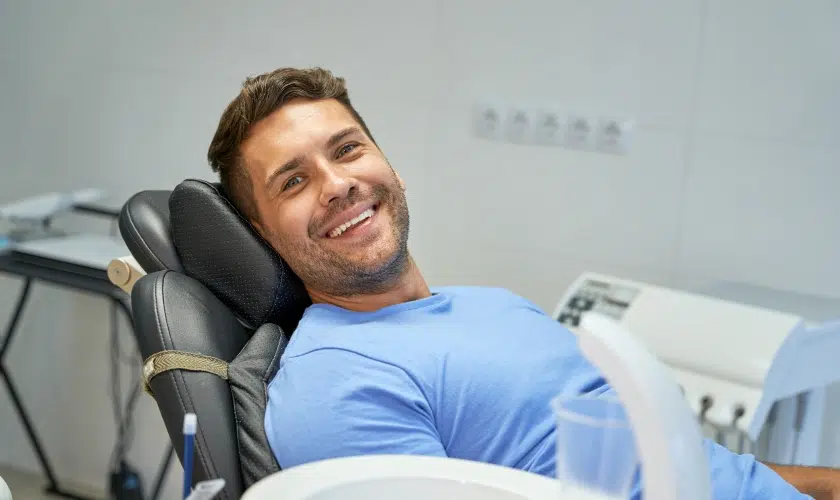5 Signs You May Benefit from Oral Appliance Therapy for Sleep Apnea: A Guide for Tustin People

Do you often feel exhausted despite a full night’s sleep? If this sounds familiar, you may be dealing with sleep apnea, which disrupts your rest. For residents of Tustin, sleep apnea can significantly impact daily life, from fatigue to decreased productivity. Many people don’t realize they have it until symptoms become severe, but there is a solution that can help.This guide will explore the five signs indicating you could benefit from oral appliance therapy. This treatment can help manage sleep apnea and improve your quality of life.
What Is Sleep Apnea and Oral Appliance Therapy?
What Is Sleep Apnea?
Sleep apnea is a sleep disorder in which breathing repeatedly stops and starts while you sleep. The most common type, obstructive sleep apnea (OSA), occurs when the muscles in the back of your throat relax too much, blocking your airway.
As a result, your body may struggle to get enough oxygen, causing brief awakenings throughout the night. This disrupts your sleep and can lead to serious health issues like high blood pressure, heart disease, and diabetes.
What Is Oral Appliance Therapy?
Oral appliance therapy involves wearing a custom-made device that fits over your teeth and helps reposition your jaw. This helps keep your airway open and prevents obstructions during sleep. The device is typically worn only at night, offering a non-invasive treatment option for sleep apnea.
Oral appliances are compact, comfortable, and portable, unlike the CPAP machine, which uses a mask and airflow to keep the airway open. They are a great alternative for people who struggle with CPAP machines or prefer a less intrusive treatment.
Why It’s Relevant to Tustin?
For Tustin residents, seeking treatment for sleep apnea is important to prevent long-term health problems. Local dental professionals and sleep specialists offer oral appliance therapy to manage this condition. With a simple consultation, Tustin locals can find relief from the disruptive effects of sleep apnea.
5 Major Signs You May Benefit from Oral Appliance Therapy for Sleep Apnea
Sign #1: Chronic Snoring
Snoring is a common sign of sleep apnea. As the airway becomes blocked, vibrations occur during breathing, causing the sound of snoring. This sound can be loud and disruptive, affecting the snorer and their partner. Chronic snoring often signals the need for treatment to address sleep apnea.
Many residents in Tustin may not realize that loud snoring could be a sign of a more serious condition. If your snoring is constant and disruptive, consider treatment options like oral appliance therapy in Tustin.
Oral appliances help reduce snoring by repositioning the jaw and tongue to keep the airway open. This results in quieter, more restful sleep for you and your partner.
Sign #2: Daytime Fatigue
Sleep apnea can disrupt sleep cycles, causing poor-quality sleep and excessive daytime fatigue. If you feel tired throughout the day despite getting a full night’s rest, sleep apnea could be to blame.
This fatigue can affect your work, school, and daily activities. It can also impact productivity and overall well-being in Tustin, where residents have busy schedules.
Oral appliances help improve sleep quality by preventing airway obstruction. When your sleep is undisturbed, you wake up feeling more rested, and daytime fatigue can be significantly reduced.
Sign #3: Difficulty Concentrating or Memory Issues
Untreated sleep apnea can affect cognitive function, causing memory issues and difficulty concentrating. Constant sleep interruptions prevent the brain from entering its deep, restorative stages, leading to forgetfulness and poor focus.
Tustin’s professionals, students, and parents may notice these cognitive issues in their daily lives. If you’ve found it hard to concentrate at work or school, sleep apnea might be the cause.
Improving your sleep with an oral appliance can help restore your ability to focus and retain information. Better sleep leads to improved cognitive function and productivity.
Sign #4: Morning Headaches
Morning headaches are common among people with sleep apnea. These headaches are often caused by tension in the neck and jaw muscles, which are strained due to blocked airflow during sleep.
In Tustin, residents may assume their headaches are caused by stress or other factors. However, if headaches persist after a full night’s sleep, sleep apnea may be a hidden culprit.
Oral appliances can alleviate headaches by preventing airway obstruction. This reduces muscle strain, leading to fewer headaches and a more restful night’s sleep.
Sign #5: Partner or Family Members Notice Breathing Pauses
One of the most alarming signs of sleep apnea is when a partner or family member notices your breathing pauses or gasping during sleep. These pauses happen when your airway becomes blocked, preventing normal breathing.
In Tustin, many residents may not be aware of the danger posed by these breathing pauses. Family members are often the first to notice, making it crucial to listen to their concerns.
Oral appliances work by repositioning the jaw, which helps keep the airway open. This reduces or eliminates the breathing pauses that often disturb sleep.
When to Seek Professional Help?
If you notice any of these signs, it’s important to consult a doctor or dentist who specializes in sleep apnea. Early intervention can help prevent the long-term effects of untreated sleep apnea, such as cardiovascular problems and cognitive decline.
If you’re experiencing any of the signs mentioned in this guide, it may be time to consider oral appliance therapy for sleep apnea. Chronic snoring, daytime fatigue, difficulty concentrating, morning headaches, and breathing pauses are all indications that treatment could help improve your sleep and quality of life.
Don’t wait until the symptoms worsen. Reach out to our local professionals in Tustin today to schedule a consultation and explore treatment options that can help you sleep better and feel more energized.



